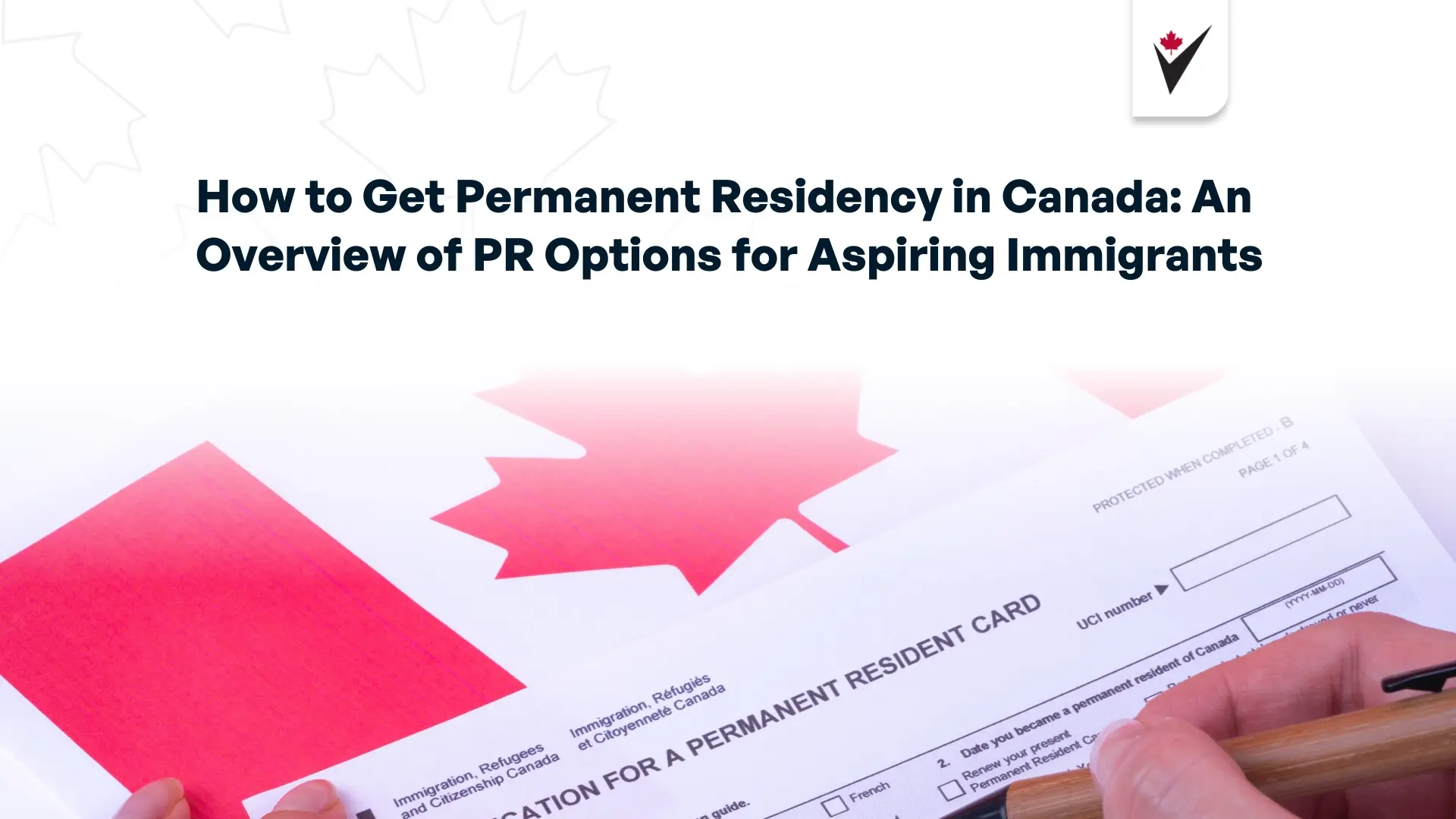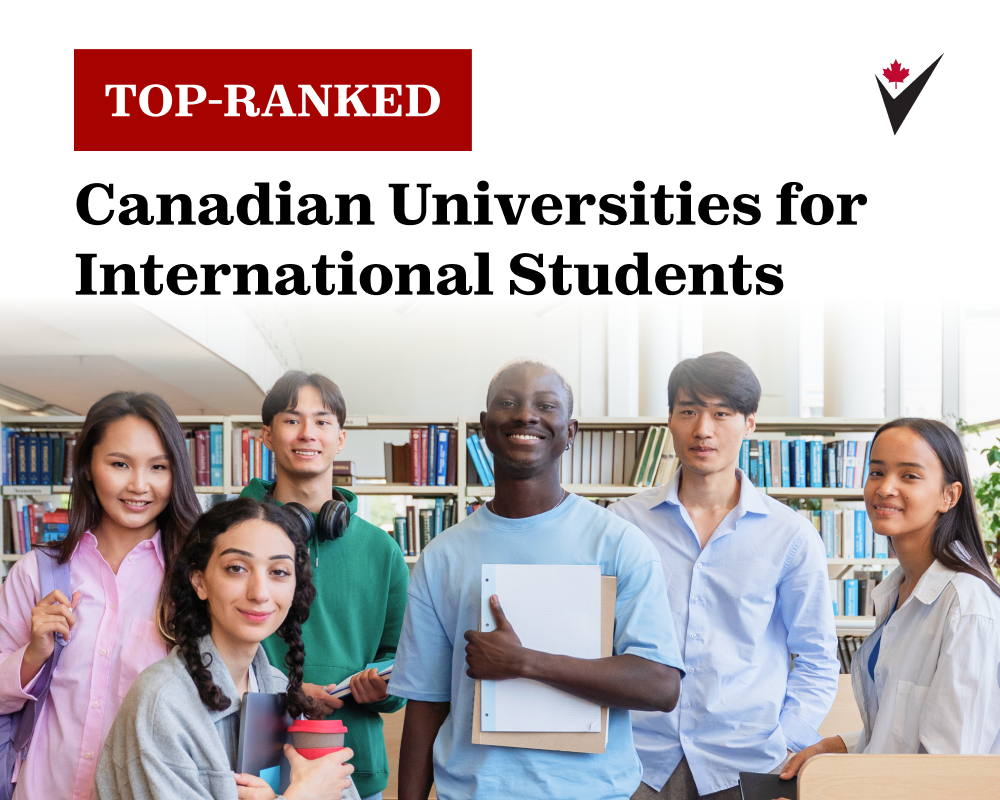- Invest
- Business Immigration
Business Immigration
Whether you choose to open or purchase a business in Canada and immigrate to the country as an investor, CanDo Canadian Immigration Services can assist you to make the most appropriate and successful choice among the various provincial and federal programs offered for business immigration.
Canada offers plenty of programs for international entrepreneurs to invest and settle permanently in the country. These programs are designed to promote economic development in Canada by encouraging investment, entrepreneurship, and employment using foreign venture capital, business acumen, and entrepreneurial skills.
Entrepreneurs can apply for business immigration programs and obtain permanent residence or start applying for work permit, work in Canada and obtain the required experience to apply for permanent residency. Canada also offers programs designed for international students who want to start or acquire a Canadian business.

CanDo will represent you throughout the entire process until your achieve your permanent residency and citizenship. We will assess your eligibility to the exiting business immigration streams, make recommendations on your best options, develop a personalized strategic action plan, prepare, submit and conduct your immigration applications in a timely and efficient manner.
To apply for business immigration streams, investors need to have the financial ability to start and operate a business and settle in Canada. They also need to be able to communicate in English or French.
Learn whether an entrepreneur program is the best immigration option for you and your family. Count on our 35+ years of experience!
In addition to assisting you with the immigration applications under the business category, we can help you with:
- Identifying suitable business opportunities
- Establishing corporate structures
- Arranging for assistance with corporate due diligence
- Corporate legal administration
- Acquiring financial services and advice
- Referrals to experts to help with business negotiations, acquisitions, and purchases
Learn more about the Canadian Business Immigration Programs
Canada has currently almost 30 business immigration programs, either federal or provincial, each with its particularities and requirements.
Federal Programs
Temporary Foreign Worker Program
The Temporary Foreign Worker Program (TFWP) is the stream for Canadian employers to hire foreign workers who do not hold an open work permit or study permit. It is also used for business owners/ operators wishing to temporarily work in Canada operating a business.
A Labour Market Impact Assessment (LMIA) application is required to determine if the employer is allowed to hire a foreign worker to operate its business. These applications will be assessed using the normal process for LMIA applications.
Applicants must meet all the regular LMIA requirements such as advertising, valid job offer, and compatible wage previously waived for this category of workers.
After obtaining a positive LMIA, the business owner/operator can apply for a work permit and, if approved, start operating the business in Canada.
Whether the business owner/operator decides to live permanently in Canada, it is possible to apply for permanent residency. A positive LMIA gives the candidate extra points when applying for Permanent Residency via Federal Express Entry.
There is no minimum net worth required to apply to the TFWP.
Talk to our business specialists to learn about this program.
International Mobility Program
Entrepreneur or Self-Employed Category
The International Mobility Program allows entrepreneurs or self-employed foreigners, seeking to open a new business in Canada or buy an existing one, temporarily work and operate the business while in Canada without a Labour Market Impact Assessment (LMIA).
Under the Entrepreneur or Self-Employed category of IMP, qualified applicants will be granted a two-year work permit. As this is temporary authorization to work in Canada, applicants must convince Immigration Officers they will leave the country at the end of the period permitted for their stay.
Work permits issued under this Program can be extended provided that the entrepreneur meets certain criteria to remain in Canada for a long-term.
Applicants need to show that their admission to Canada to operate their business would generate significant economic, social or cultural benefits or opportunities for Canadian citizens or permanent residents.
Immigration, Refugees, and Citizenship Canada (IRCC) consider the following factors to define if the benefit is significant:
- The work is likely to create a viable business that will benefit Canadian or permanent resident workers or provide economic stimulus
- The applicant has a particular background or skills that will improve the viability of the business
- There is a business plan that clearly shows that the applicant has taken steps to initiate their business
- The applicant has taken some measures to put the business plan in action, showing evidence of having the financial ability to begin the business and pay expenditures, renting space, having a staffing plan, obtaining a business number, showing ownership documents or agreements, etc.
Requirements
Applicants need to own at least 50% of the business to be eligible for a work permit through the International Mobility Program – entrepreneur or self-employed category.
If the entrepreneur eventually decides to live permanently in Canada, it is required to apply for a permanent residency program.
Canada-United States-Mexico Agreement (CUSMA)
Trade Agreements is another category of the International Mobility Program, also designed for entrepreneurs and investors.
Canada, U.S., and Mexico entered into the Canada-United States-Mexico Agreement to facilitate trade and revoke barriers to do business among them.
CUSMA eliminates the need for a Labour Market Impact Assessment (LMIA) for all business persons covered by the Agreement.
Citizens of the U.S. and Mexico seeking to enter Canada to operate a business for the purpose of trade of goods or services, or investment activities are authorized to do under the CUSMA.
Business visitors from these countries are not required to hold a work permit. The other categories of business persons who can enter Canada through the IMP - CUSMA need first to obtain a work permit.
Categories of business persons who can enter Canada under the CUSMA:
- Business visitors – do not need a work permit to enter Canada
- Professionals (according to list of eligible professions under the CUSMA) – need a work permit to enter Canada
- Intra-company transferees - need a work permit to enter Canada
- Traders and investors – need a work permit to enter Canada
Start-Up Visa Program
Designed for entrepreneurs with innovative ideas, skills, and the ability to start and grow a business in Canada, the Start-Up Visa Program is an option for investing in the country and a pathway for Canadian permanent residency.
Entrepreneurs need to have a qualifying business and support from venture capital funds, an angel investor group, and/or a business incubator listed as designated organizations by Immigration Canada to apply for the Start-Up Visa Program.
It is mandatory that applicants and the designated organization jointly hold more than 50% of the total voting rights at the time of submission.
Usually, the applicants are required to submit a business plan to the designated organization. A complete, detailed, and well-elaborated business plan is essential at this stage to increase the chances of a successful application.
One or more organizations can review the business proposal and, at their own discretion, choose to invest in or support a start-up business.
A work permit is required to start working in Canada. Upon receiving a commitment certificate and a support letter from one or more designated organizations, the investor can apply for a work permit.
The minimum language requirement for this Program is level 5 of CLB (Canadian Language Benchmark) in either English or French in all of the four skills.
Lastly, applicants need to provide biometrics, medical exams, police certificates and prove having enough money to afford the costs to settle in Canada.
By the end of the permanent residency process, the applicant needs to demonstrate active and ongoing management of this business from within Canada, that the business is incorporated in Canada and an essential part of the operations of the business happens in Canada.
Self-Employed Persons Program
Self-employed persons with relevant experience in cultural activities or athletics and wish to live permanently in Canada can apply for the Self-Employed Persons Program. The applicant must be willing and able to make a significant contribution to the cultural or athletic life of Canada.
At least two years of experience is required, considered the period starting five years before the submission date until the date a decision is made on the application.
Applicants are graded based on five selection criteria and a point system with a maximum score of 100. The current pass mark is 35.
Experience (35 points)
- Education (25 points)
- Age (10 points)
- Language Abilities (24 points)
- Adaptability (6 points)
Lastly, applicants need to provide biometrics, medical exams, police certificates and prove having enough money to afford the costs to settle in Canada.
Provincial Programs
Provincial Nominee Programs (PNP) Entrepreneur Immigration
Through the provincial nominee programs for entrepreneurs, business persons willing to invest in Canada can contribute to small communities’ economy and development, and obtain Permanent Residency in a timely manner.
Most of the time, business immigrants prefer Provincial to Federal immigration programs due to lower costs and language skills requirements as well as shorter processing time.
Check below the provinces you are interested in living in and contact us to learn the requirements. We assist in defining the best provincial program for you and your family to immigrate to Canada.
British Columbia
- British Columbia Provincial Nominee Program (BC PNP) Entrepreneur Immigration Base Category
- British Columbia Provincial Nominee Program (BC PNP) Entrepreneur Immigration - Regional Pilot
- British Columbia Provincial Nominee Program (BC PNP) Strategic Projects
Quebec
- Quebec Immigrant Investor Program
- Quebec Entrepreneur Program
- Quebec Self-Employed Worker Program
Alberta
- Alberta Foreign Graduate Start-up Visa Stream
- Alberta International Graduate Entrepreneur Immigration
- Alberta Self-Employed Farmer Stream
Manitoba
- Manitoba Provincial Nominee Program — Business Investor Stream (Entrepreneur Pathway)
- Manitoba Provincial Nominee Program — Business Investor Stream (Farm Investor Pathway)
New Brunswick
- New Brunswick Provincial Nominee Program (NBPNP) — Entrepreneurial Stream
- New Brunswick Provincial Nominee Program (NBPNP) — Post-Graduate Entrepreneurial Stream
Ontario
- Ontario Immigrant Nominee Program (OINP) — Corporate Stream
- Ontario Immigrant Nominee Program (OINP) — Entrepreneur Stream
Prince Edward Island
- Prince Edward Island Provincial Nominee Program (PEI-PNP) - Work Permit Stream
Saskatchewan
- Saskatchewan Immigrant Nominee Program (SINP) - Entrepreneur Category
- Saskatchewan Immigrant Nominee Program (SINP) - Farm Owner/Operator Category
Yukon
- Yukon Business Nominee Program (YBNP)
Nova Scotia
- Nova Scotia Nominee Program (NSNP) — Entrepreneur Stream
- Nova Scotia Nominee Program (NSNP) — International Graduate Entrepreneur Stream
Northwest Territories
- Northwest Territories Nominee Program — Entrepreneur Business Stream
Regulated Canadian Immigration Consultants (RCIC-IRB)
Proudly regulated by and in good standing with the College of Immigration and Citizenship Consultants (CICC). Jamie Dowla, registration #: R507233.

Our Canadian Immigration Success Stories
Learn About All of the Great Things
Canada Has to Offer!
Canadian Immigration News, Tips, and Resources

How to Get Permanent Residency in Canada: An Overview of PR Options for Aspiring Immigrants
For many aspiring immigrants, the dream of building a new life in Canada begins with securing permanent residency. Canada offers a welcoming environment, a high quality of life, and a wealth of
read more
How Long Does it Take to Get Canada Permanent Residency: 5 Factors That Can Affect Your Processing Time
If you’re seeking permanent residency in Canada, one of the most pressing questions you may have is: how long does it take to get Canada permanent residency? The waiting period can be a significant
read more
Top-Ranked Canadian Universities for International Students
Every year, Canada welcomes hundreds of thousands of international students. When you study in Canada, you invest in your future. In this article, we’ll explain why Canada is an ideal destination for
read moreFind Your Licensed Immigration Consultant
Wherever You Are Located
We assist clients across Canada and internationally. See the countries below to find your regulated Canadian immigration consultant.

